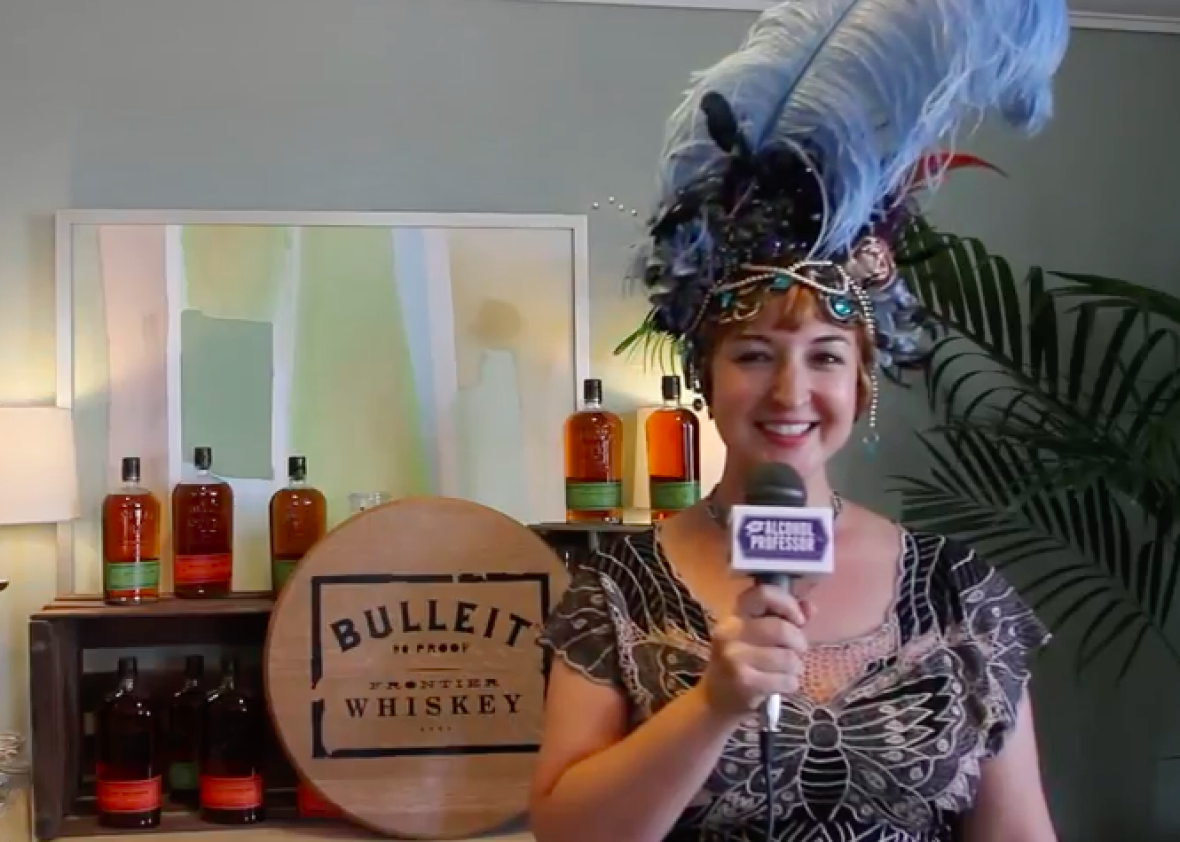In January 2017, Hollis Bulleit announced that she was leaving her job at Diageo, one of the world’s largest alcoholic beverage producers, and owner of Bulleit Bourbon. The daughter of Bulleit Bourbon founder Tom Bulleit, Hollis is well-known in the beverage industry for her longtime service to her family’s company, her elaborate headwear—she recently sold a collection of six of her homemade fascinators to help pay her “legal fees”—and her winning demeanor. Many were surprised by her departure from the brand she’d repped for more than a quarter-century, but few knew why they’d parted ways.
Over the past few days, Hollis has published several lengthy Facebook posts explaining what went down, from her perspective. According to her, the Bulleit family refused to accept her queer identity when she came out 10 years ago, and they rejected her decade-long partnership with a woman named Cher. While the spouses and partners of her siblings were included in family photos and press for the company, Hollis writes, she and Cher were excluded from major events and slowly edged out of the picture. Hollis, who has been publicly out for many years, says she was informed in December that she no longer had a job with Diageo; Diageo claims it offered her a multi-year renewed contract but was unable to agree with Hollis on the terms.
She helped break ground on the company’s new distillery in 2014, but says Cher didn’t get an invite. Neither was asked to attend the grand opening in March, Hollis alleges. “In 2008, I was asked to come home for Christmas; yet Cher was not invited,” Hollis wrote on July 31. “The only holiday that we attended was Thanksgiving in 2016, and then we were promptly uninvited via text from the following core family Christmas.”
Her allegations illuminate the complex responsibilities a corporation that owns a family business faces. In these cases, family troubles are de facto workplace troubles, and family homophobia could amount to employee discrimination based on sexual orientation. “Because family was business and intertwined with a global corporation, I find it odd that I did not benefit from the departments and safeguards that are put into place to either intervene or provide mediation or educational diversity training as would be the expected protocol for employees in this type of situation,” Hollis wrote in one of her posts. For several years, the Human Rights Campaign has given Diageo North America a perfect score on its Corporate Equality Index, a measure of companies’ support for LGBTQ employees and issues.
Hollis declined to answer any questions, but told me that she and Diageo “have come to a 24 hour halt” and any press “could mess up legal proceedings.” A Diageo spokesperson had this to say in an emailed statement:
In advance of Hollis’ contract expiring in 2016, we offered her a multi-year extension. Despite it being an increase versus her previous arrangement, we were unfortunately not able to reach agreement with her on this new contract. Any implication that she was fired, or that failure to agree to terms on this contract was due to her LGBT identity, is simply false. We are very proud of our long track record of work, through many of our brands, to support the LGBT community. We are also appreciative of Hollis’s past efforts on behalf of the brand and the industry.
But as Hollis’ claims and Diageo’s clash in the press, the story of Bulleit family infighting has been rocking the beverage industry. “All that is evil, impersonal and dirty about the business is laid bare right here. It’s a rotten affair Bulleit and it’s gonna hurt your brand,” wrote the owner of a Louisville, Kentucky whiskey bar of one of Hollis’ Facebook posts. A representative of a Santa Cruz bar has said the establishment will no longer buy Bulleit “in solidarity with those individuals whom have been rejected by their families for living their authentic lives,” and will use the proceeds from sales of its remaining Bulleit stock to “benefit the LGBTQIA community of Santa Cruz.” Seattle Cocktail Culture, a bar-finding app, posted that Hollis “has been an incredible advocate for American whiskey & her family’s brand,” so the proprietor is “done with Bulleit; that might not help Hollis but I won’t be apart of this gross mistreatment.”
“She was the reason the craft bartending community embraced the brand,” Seattle bartender Elizabeth Dingivan posted on Tuesday, “and given the attempts to erase her legacy and co-opt her work, we are prepared to move on from Bulleit as a brand altogether.”
Now, Hollis worries that she won’t be able to find new work in alcohol brand promotion at age 43 without recommendations from her former employer. And she writes that she was surprised to learn that she can’t trademark her own name and start a new whiskey company under that moniker because Diageo would legally be able to challenge the brand’s name for being too close to Bulleit Bourbon.
Among some in the beverage industry, though, Hollis’ name still means something, even if it has no more connection to the brand she helped build. New Orleans bar owner T. Cole Newton writes that he took the occasion of an annual gathering of bartenders “to respectfully tell Tom Bulleit publicly and in person how much harder it is to support his brand without someone like his daughter Hollis involved.” Diageo and Bulleit Bourbon may have to come up with a better explanation for Hollis’ dissatisfaction if they want to keep the business of such proprietors. For those bartenders and business owners, loyalty to the brand means loyalty to the woman who helped get them hooked.
